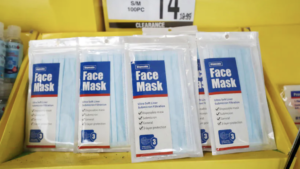Home » Commentary » Opinion » Will generation lockdown write good history?
· Spectator
 Twenty-first century history is being made each day. The news is full of statue-toppling anarchists and clueless looters, politicians making life and death decisions on COVID-19, increasing cybercrime and human rights abuses, loss of respect for longstanding international conventions of the sea and air … and the list goes on.
Twenty-first century history is being made each day. The news is full of statue-toppling anarchists and clueless looters, politicians making life and death decisions on COVID-19, increasing cybercrime and human rights abuses, loss of respect for longstanding international conventions of the sea and air … and the list goes on.
Language is debased, with attacks on individuals rather than the robust and respectful exchange of ideas, and it is often a struggle to see past the polemic.
At times like these, there can be a realisation of a desperate need for knowledge and skills to examine ourselves and our past to reassure ourselves that people are capable of great goodness.
Only the sophisticated, inquiry-based study of human history can do this.
Downunder, reviewers of the Australian Curriculum have a tiny window of opportunity to make History the go-to subject that will finally stand tall alongside English, Mathematics and Science as signalled when those first four learning areas were prioritised back in 2011.
If, as the Alice Springs (Mparntwe) Declaration states, the aim is that “All young Australians become confident and creative individuals, successful lifelong learners, and active and informed members of the community”, the study of History (including Ancient, Modern and Australian) sits at the heart of the national curriculum.
Unfortunately, like foreign languages and the arts, Australian education places History in the category of ‘nice to have’ but without widely accepted value ‘in the real world’.
This subject area suffers from some of the same issues as STEM and languages – too few highly trained teachers, and too little public support for intellectually rigorous education.
At its very best, the study of history — more than any other area of the curriculum — produces analytical thinkers, researchers with academic integrity and deep curiosity, competent writers and thoughtful debaters who marshal the evidence to explain the past, the present and the possible future.
But Australian education is reaping what we have sown — a weak, disjointed curriculum, lacking a powerful overarching national narrative (see Singapore for contrast) and clear, high standards. This is particularly evident in History, with its inconsistent delivery, small enrolments in Years 11 and 12 and minimal alignment with the separate subject of Civics and Citizenship.
Now we have pyjama-clad generations of lockdown people who will base their understanding of this period in Australian and world history only on their personal experience of the pandemic, or the curated storylines of social media. Encouraging a focus on the shape of the day and a sense of belonging, some schools and systems are mandating that students appear in uniform — or at least fully dressed in appropriate clothing — when remote learning starts.
Many Australians who aren’t out of their pyjamas by 9 am are in secure jobs that have easily transferred to a keyboard and earbuds away from the office. Those on the medical frontline will be too exhausted to reflect too much.
Millions of others have lost their jobs or businesses and won’t be terribly inspired to analyse their experience. The mums and dads who are trying to keep smiling while homeschooling children and simultaneously worrying about elderly relatives and vulnerable friends and neighbours have other priorities.
So who will write the history of these strange times? As the saying goes, those who do not remember the past are condemned to repeat it. And history does tend to be written by the winners.
The revised Australian Curriculum needs to be a winner, especially in that most precious field of History.
Fiona Mueller is an Adjunct Scholar at the Centre for Independent Studies.
Will generation lockdown write good history?